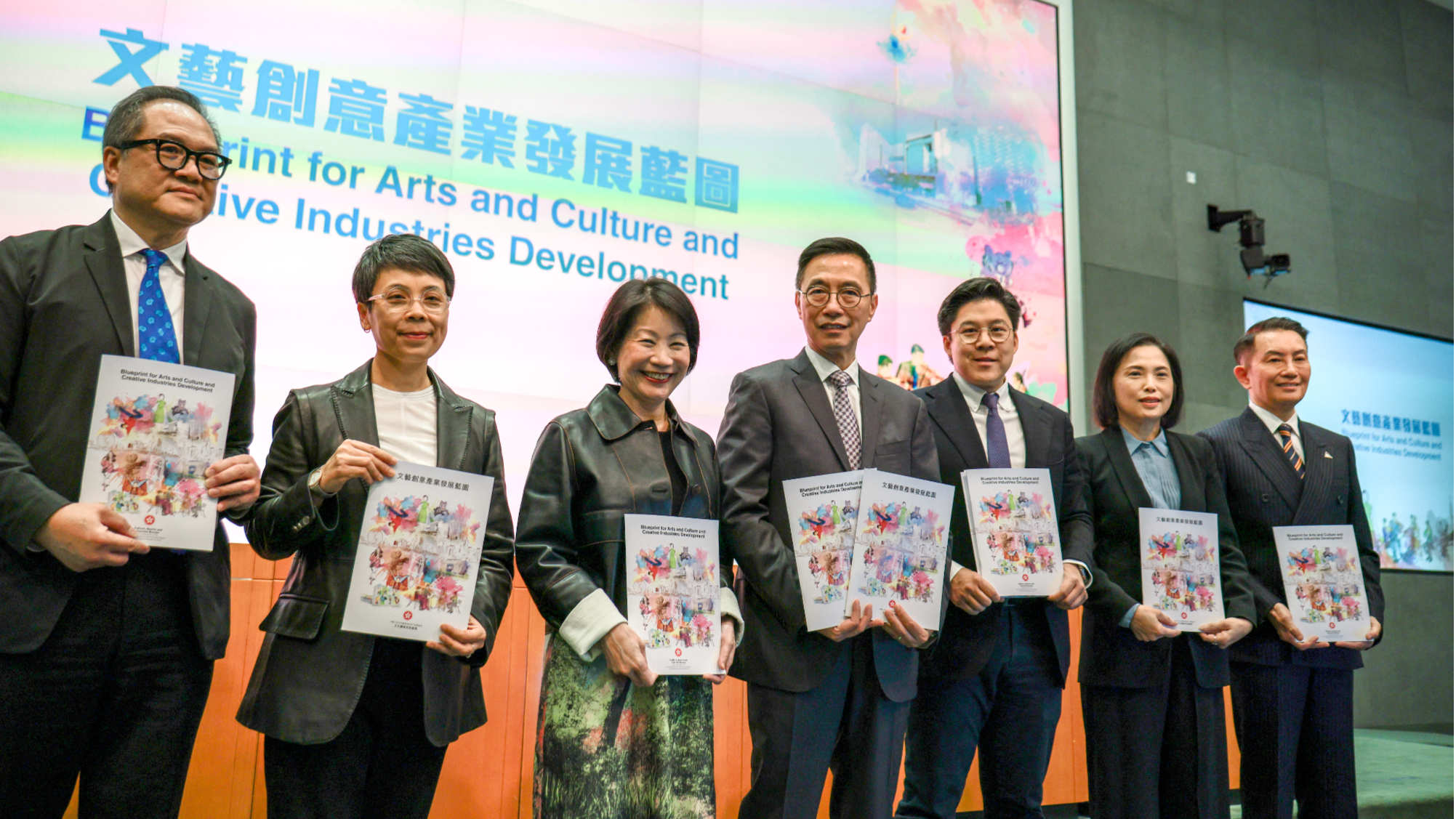
Hong Kong intends to develop its arts and culture sector over the next 10 years into an industry with an added value of over HK$200 billion ($25.7 billion), according to a blueprint released on Tuesday.
Apart from boosting business related to arts and culture, the Blueprint for Arts and Culture and Creative Industries Development includes efforts to cultivate professionals well-versed in traditional Chinese culture and help Hong Kong artists tap into the Chinese mainland market and use mainland art-related facilities.
The blueprint lists 71 initiatives that include spreading traditional Chinese culture, developing an international and diverse arts and culture industry, building a platform for global cultural exchanges, and fostering an ecosystem benefiting local cultural and creative sectors.
READ MORE: Cultural fusion in HKSAR a positive example to the world
For instance, the blueprint proposes optimizing the current subsidy programs to benefit more local artists and performances.
The government of the Hong Kong Special Administrative Region will provide more performance venues, including displaying artworks created by local artists in more government buildings, and encourage more cultural events to be hosted in Hong Kong, according to the blueprint.
A one-stop service platform will be built to support Hong Kong artists to explore the mainland markets, and help them utilize facilities on the mainland for performance, content-creating and storage purposes.
Other initiatives include building a museum featuring the nation’s history and achievements in the Northern Metropolis – a planning area for developing Hong Kong’s emerging industries in the future.
Through various policies, the blueprint aims to increase the added value of the cultural and creative industries to more than HK$200 billion and create 264,000 job opportunities by 2034.
Speaking at a Tuesday news conference, Secretary for Culture, Sports and Tourism Kevin Yeung Yun-hung said the blueprint aims to leverage Hong Kong’s foundation in Chinese culture, blend with Western cultural traits, and propel the development of high-quality cultural arts and creative industries to achieve sustainable long-term growth in Hong Kong.
The blueprint also highlights Hong Kong’s aim of promoting traditional Chinese culture, highlighting the characteristics of Lingnan culture, and nurturing professionals familiar with traditional Chinese culture while supporting patriotic education efforts, Yeung said.
The HKSAR government will also encourage private-sector involvement, stimulate cross-sector collaboration, and enhance the ecosystem to foster more talent, he added.
READ MORE: Hong Kong should learn from Shanghai on cultural policies
Kenneth Fok Kai-kong, chairman of the Hong Kong Arts Development Council, said at the same event that efforts will be intensified to promote traditional Chinese culture in schools and among young people.
According to the blueprint, the authorities will organize multimedia exhibitions, workshops and events for deepening youngsters’ understanding of national identity, national achievements and Chinese culture.
Fok said he hopes that the development directions outlined in the blueprint can better integrate existing resources, including government and societal inputs, to achieve common goals and build a sustainable cultural and artistic ecosystem.
In a statement, the West Kowloon Cultural District Authority welcomed the blueprint and committed to strengthening Hong Kong’s cultural and creative industries as a strategic partner with the government.
The authority’s board chairman, Henry Tang Ying-yen, said the landmark art hub will launch a series of measures aligned with the Policy Address and the blueprint, including developing a comprehensive arts trading ecosystem and exporting more arts, cultural and creative projects.
The Hong Kong Arts Centre pledged its full support for the government policies, saying it will enhance both professional and community art education to nurture talent and enrich local culture.
Eric Yim Chi-ming, chairman of the Hong Kong Design Centre, said the organization will continue to support emerging fashion designers and startups through funding it received under the CreativeSmart Initiative.
He welcomed plans to relax venue restrictions and expand exhibition spaces, noting that the center’s new DX design hub in Sham Shui Po will help facilitate collaboration between designers and industries.
Contact the writer at stephyzhang@chinadailyhk.com


